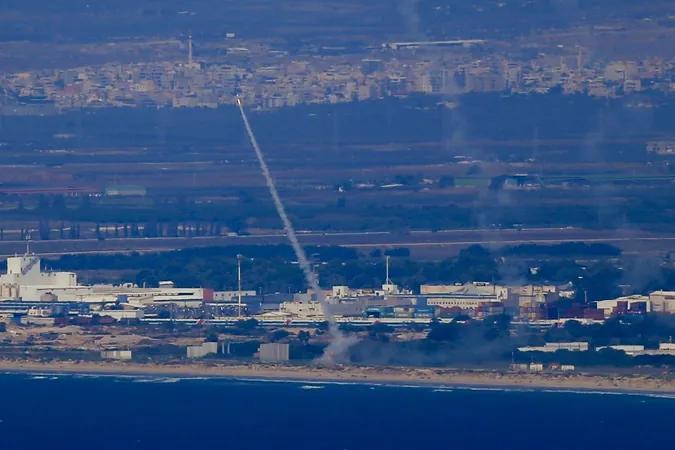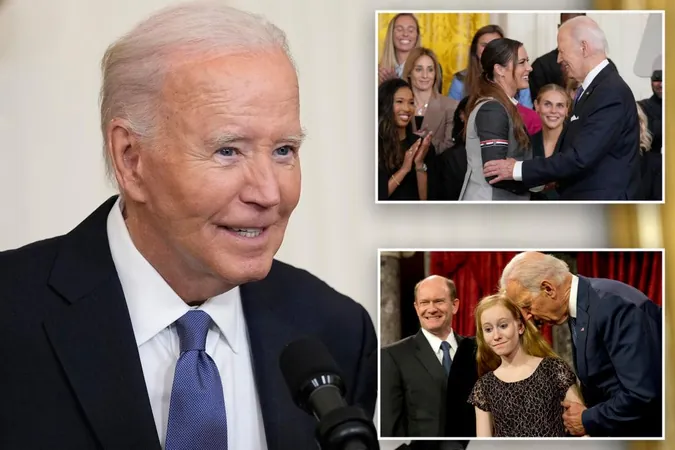
Escalating Tensions: Is the Middle East on the Brink of a Multi-Front War?
2024-09-26
Escalating Tensions: Is the Middle East on the Brink of a Multi-Front War?
The specter of an expanded conflict in the Middle East is becoming increasingly tangible, leaving analysts and officials alike to ponder how far and how violently the flames of war will spread. With Israel potentially gearing up for its first three-front war since the Yom Kippur War of 1973, the situation is evolving rapidly and uncertainly.
Israel currently faces simultaneous threats from Gaza, the West Bank, and Lebanon, with the latter being ignited by fierce clashes with Iranian-supported Hezbollah forces. This escalation, emerging from a historically tense relationship, could have catastrophic repercussions not just for the involved parties, but for the region as a whole.
Amidst these developments, U.S. President Joe Biden and European leaders have suggested a temporary cease-fire lasting 21 days. However, given the stalemated negotiations over the war in Gaza over the past 11 months, skepticism abounds regarding the chances for success. Netanyahu, known for his dual approach to international diplomacy, has expressed a willingness to consider Biden's proposal while simultaneously assuring his right-wing coalition that attacks on Hezbollah will continue unabated. This reflects a complex balancing act amidst escalating hostilities.
The ongoing Israeli strikes on Hezbollah are part of a broader strategy aimed at degrading the group’s military capabilities. The recent operations began with sophisticated attacks targeting Hezbollah's communications infrastructure, followed by extensive airstrikes on its positions. Notably, Hezbollah has retaliated with rocket fire reaching as far as Tel Aviv, marking a significant escalation in their military response.
Hezbollah, classified by numerous nations as a terrorist organization, exerts considerable control over Lebanese politics and maintains a formidable military presence. Reports suggest it boasts an arsenal of over 100,000 rockets and has developed extensive underground networks throughout Lebanon. The long-standing conflict between Israel and Hezbollah has led to an increase in rocket exchanges, particularly after the outbreak of conflict in Gaza, forcing thousands of northern Israelis to flee their homes.
Despite the devastation already wrought on Hezbollah's military framework, the critical question remains: how will Hezbollah leader Hassan Nasrallah react to Israel's aggressive advances? The precedent set during the 2006 war shows Nasrallah's pragmatism; he later expressed regret over underestimating Israel's retaliation. Yet, he leads a powerful faction that cannot afford to be perceived as weak, making the stakes exceptionally high.
In this complex geopolitical landscape, Hezbollah serves as a crucial link in Iran's network of regional proxies, poised against Israel and its allies, including the United States. While Tehran may prefer to avoid direct confrontations, maintaining a facade of strength among both allies and adversaries is essential.
Challenges are manifold, particularly as Israeli leadership believes they have a unique opportunity to dismantle Hezbollah's structure and ultimately neutralize the threat posed by the group. Prime Minister Netanyahu describes this approach as a “victory doctrine," aligned with similar goals against Hamas in Gaza. Increased intelligence capabilities have reportedly allowed Israel to identify thousands of targets within Lebanon, a stark increase compared to past conflicts.
The ongoing air campaign involves striking targets comprehensively across Lebanon, directly risking civilian lives, as the distinction between military and civilian infrastructure blurs amidst warfare. Recent reports indicate that bombings have already resulted in thousands of casualties, raising humanitarian concerns.
As both sides continue to exchange fire, the looming threat of a larger conflict escalates. Should Hezbollah conclude that Israel's military actions warrant a more forceful retaliation, the situation could spiral out of control, inviting Iranian involvement and potential retribution of significant proportions.
Diplomatic solutions could have prevented this escalation; however, with entrenched hostilities and nationalist sentiments swirling, the path to peace appears increasingly rocky. Netanyahu's coalition, held together by precarious ties to far-right factions, complicates any potential ceasefire. The threats of political backlash and instability loom ominously over any discussion of ending hostilities.
Historically, military interventions in Lebanon have created prolonged engagements; should Israeli forces invade, they may encounter the same cycle of conflict that characterized the 1982 intervention. The outcomes from past campaigns highlight the unpredictability of military endeavors in a region steeped in complexity.
Amid the growing crisis across Israel, Gaza, and Lebanon, the urgency for effective diplomatic interventions has never been greater. However, orchestrating a balanced resolution in this multifaceted environment remains a formidable challenge that beckons immediate attention from global leaders and stakeholders committed to peace in the Middle East.


 Brasil (PT)
Brasil (PT)
 Canada (EN)
Canada (EN)
 Chile (ES)
Chile (ES)
 España (ES)
España (ES)
 France (FR)
France (FR)
 Hong Kong (EN)
Hong Kong (EN)
 Italia (IT)
Italia (IT)
 日本 (JA)
日本 (JA)
 Magyarország (HU)
Magyarország (HU)
 Norge (NO)
Norge (NO)
 Polska (PL)
Polska (PL)
 Schweiz (DE)
Schweiz (DE)
 Singapore (EN)
Singapore (EN)
 Sverige (SV)
Sverige (SV)
 Suomi (FI)
Suomi (FI)
 Türkiye (TR)
Türkiye (TR)